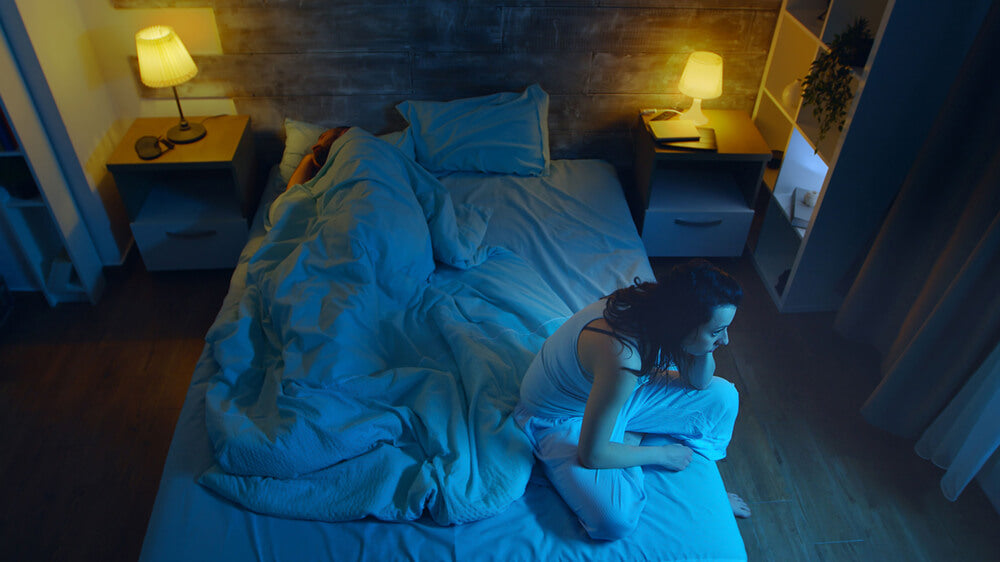How Much Sleep Is Really Enough For You?
Can you survive on five hours of sleep? We all know the basic, 8-hour-a-night sleep prescription. That’s the number that gets tossed around a lot, as the amount of sleep we’re all supposed to be shooting for every night. As with so much about sleep, the reality is more complex. Let’s look at a few of the most important factors that affect our individual needs for sleep. Many get far less sleep each night.

Recommended Hours Of Sleep By Age
How much sleep is sufficient for humans? Well, sleep needs change over our lifetimes, most dramatically during the developmental years of childhood and adolescence. How much sleep is sufficient for human? Any parent knows newborns need a lot of sleep throughout the day and night. But right through their high-school years, children and teens need more sleep than adults to, to help fuel all the physiological growth and development they’re undergoing.
It's often known that sleep quality decreases with age. This is tied to slow-wave sleep. Slow-wave sleep (SWS) refers to phase 3 sleep, which is the deepest phase of non-rapid eye movement (NREM) sleep. Slow waves are produced in the medial prefrontal cortex, an area of the brain. The medial prefrontal cortex deteriorates over time, older people typically experience less slow-wave sleep during a normal sleep cycle and have a harder time processing memories.
Learn more about How Your Sleep Changes as You Age.
The National Sleep Foundation recommends these amounts of sleep for kids and teens:
Age Group
Age Range
Recommended Amount of Sleep per Day
Newborn
0-3 months
14-17 hours
Infant
4-11 months
12-15 hours
Toddler
1-2 years
11-14 hours
Preschool
3-5 years
10-13 hours
School-age
6-13 years
9-11 hours
Teen
14-17 years
8-10 hours
Young Adult
18-25 years
7-9 hours
Adult
26-64
7-9 hours
Older Adult
65 years or older
7-8 hours
Recommended Hours Of Sleep For Adults
What happens when we get to adulthood? Is it enough getting 5 hours of sleep in adulthood, too? Our sleep needs settle out and essentially remain the same throughout our adult lives.
Contrary to what people often think, scientists and sleep experts say we don’t need less sleep during older adulthood. Instead, in order to function and feel at our best, we need about the same amount of sleep we did when we were in our 30s, 40s, or 50s.
The National Sleep Foundation recommends these sleep amounts for adults:
- Young adults, ages 18-25: 7-9 hours a night
- Adults, ages 26-64: 7-9 hours a night
- Older adults, 65+: 7-8 hours a night
How Genetics Affect Sleep
Even within our own families, we all probably see different sleep needs and sleep habits that seem deeply ingrained. Our genetics play a role in establishing our individual needs for sleep. This is why the guidelines above are only guidelines because we’re all a bit different when it comes to the “right” amount of sleep.
Our genes affect how much we sleep, and also the preferred timing of our sleep. Genetics plays a big part in determining whether we’re early birds, night owls, or somewhere in between. (These preferences are known as chronotypes, and they affect not only our sleep-wake cycles but the timing of plenty of other physiological functions, from digestion and cognition to daily cycles of mood and energy.)
Scientists also think our genes are a factor in our risk for snoring and other forms of sleep-disordered breathing including sleep apnea. Of course, we can’t change our genes, but we can work to become more aware of our own, innate preferences, and do our best to tailor our sleep schedules to meet them.

Carrying Sleep Debt And How To Fix It
This is a common factor in our need for sleep, and it’s a bit different for everyone. Sleep debt is the deficit between the amount of sleep our bodies need, and the amount we’re actually getting. When we don’t get enough sleep to meet our individual needs, our sleep debt grows—like the unpaid balance on a credit card.
Many of us carry a sleep debt from week to week and month to month. The only way to erase a sleep debt is by making up the sleep we’ve missed out on. When you are carrying around a sleep debt, you’re in need of additional sleep beyond your typical “right” amount.
The National Sleep Foundation has tips for helping to pay down a sleep debt. Their main advice? Don’t try to make up for lost sleep all at once. Slow and steady is the better route to making up for lost sleep.
Get regular! Read: Why it Pays to be a Regular Sleeper.



